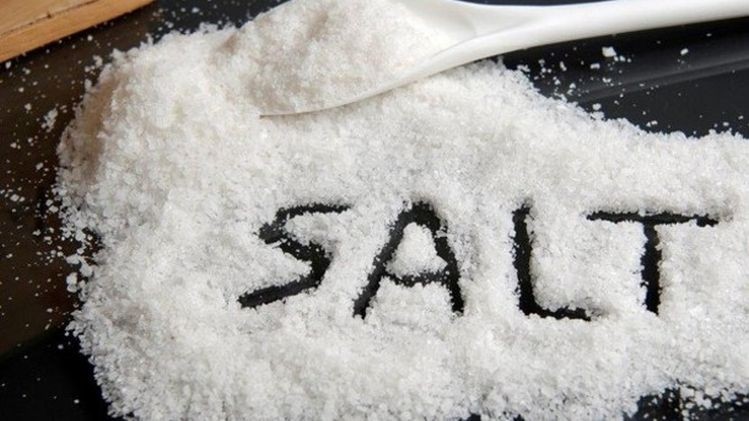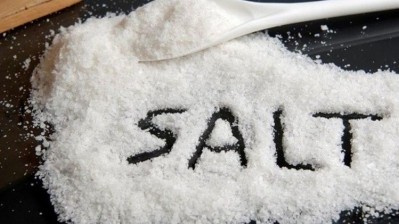FDA to permit ‘potassium chloride salt’ in place of ‘potassium chloride’ on food labels; CSPI says new term 'not helpful'

In draft guidance issued Friday, the FDA advised food manufacturers of its “intent to exercise enforcement discretion for the name ‘potassium chloride salt’ in the ingredient statement on food labels as an alternative to the common or usual name ‘potassium chloride,’” and has invited public comment (deadline: 60 days after publication in the Federal Register).
It added: “Potassium chloride, in some instances, can be used as a partial substitute for sodium chloride in food processing and manufacturing. The addition of the term ‘salt’ to ‘potassium chloride; may encourage manufacturers to use this sodium alternative and help consumers to understand that potassium chloride can replace sodium chloride in foods.
"This may help to reduce the intake of sodium, which is over-consumed by the US population, while increasing potassium, which is under-consumed.”
CSPI: FDA's approach is 'inexplicable'
Michael Jacobson, co-founder and senior scientist at the Center for Science in the Public Interest, told FoodNavigator-USA he was baffled by the FDA's decision to retain the term 'chloride' given that this is the term the consumer research revealed as problematic.
"It's not helpful to say potassium chloride salt. The whole point of this effort was to make a term more consumer friendly and clean label, so why include the chemical term chloride. It just doesn't make sense. It's quite inexplicable.
"I suspect that there will be so much opposition to the term and so much support for 'potassium salt' that FDA will have to change its tune."
Lee Sanders, SVP government relations and public affairs at The American Bakers Association said the ABA "has been very supportive of a 'potassium salt' term as this product has great application for a variety of bakery products to lower sodium content and increase potassium intake."
She added: "ABA would have preferred 'potassium salt.' Since this is draft guidance, we are hopeful that the final guidance will move in that direction."
"We are disappointed with the decision from the FDA. Our point of view is that simplifying the name to potassium salt would improve consumers’ understanding of ingredients, and we continue to believe it is the better option."
Unilever USA spokesperson
NuTek: 'We believe we can make a strong case for its removal [the word 'chloride'] during the comment period'
NuTek Food Science filed a citizen’s petition with the US Food and Drug Administration (FDA) in 2016 urging the agency to permit the term 'potassium salt' on US food labels.
A friendlier name would demystify the ingredient and help the industry achieve the dual goals of lowering sodium and increasing potassium intakes, according to NuTek - which has patented a process that suppresses potassium chloride's metallic taste without requiring companies to add expensive flavor masking ingredients – and says consumer research shows that shoppers view ‘potassium salt’ more favorably than ‘potassium chloride.’
Asked how he felt about the FDA's response, Nutek president and COO Brian Boor told FoodNavigator-USA said he was cautiously optimistic that stakeholders could persuade the agency to remove 'chloride' and stick with 'potassium salt,' as per Nutek's original petition.
"Although we need to review the newly released materials in greater detail, it is very clear that the FDA recognizes the importance of potassium salt replacement in the food reformulation process," said Boor. "It is also clear that the FDA recognizes the significant health benefits potassium salt replacement can provide in improving consumer nutrition.
"Although we are disappointed to see that 'chloride' was not removed from the labeling description in this draft guidance, we believe that we can make a strong case for its removal during the upcoming 60-day comment period. We have more work to do, but we view this as a major step forward in advancing the FDA’s Nutrition Innovation Strategy.”
Consumers are suspicious of the term 'chloride'
Consumer research shared with Health Canada in November 2018 showed that consumers have concerns regarding the term ‘chloride,’ said leading food manufacturers in a letter penned to Health Canada earlier this year.
“Some consumers regard potassium chloride as an ingredient to be avoided, mistakenly believing it to be an undesirable chemical substance (i.e. chlorine) rather than an essential mineral / nutrient. Many food companies are therefore hesitant to employ potassium salt substitution within recipes when such use must be declared as ‘potassium chloride.’”
The Canadian Food Inspection Agency has previously established precedents for synonyms for a variety of ingredients and food additives, permitting ‘baking soda’ for sodium bicarbonate, ‘lye’ for sodium hydroxide, and ‘Graham’s Salt’ for Sodium Hexametaphosphate, for example, noted the food companies.
“It is somewhat ironic when one considers that sodium chloride may be declared on the label merely as ‘salt’ and not as ‘sodium chloride.’”
More reaction to follow...

















